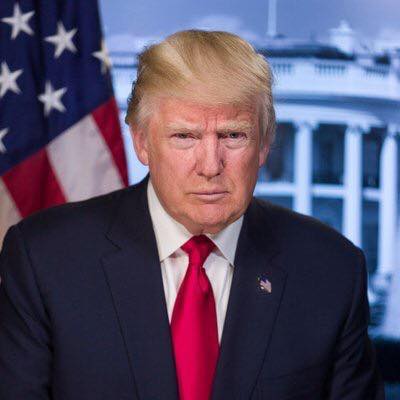Dear Mister President-Elect
May I take this opportunity to congratulate you on your election.
As a fellow citizen of our planet I wish to submit to you a proposal about your foreign policy, although I realise you will probably never get to read it. The uncertainty that comes along with a change of government in the USA as a super power could lead to a cooling off of friendships and could spur enemies on to venture into all kinds of exploits.
Foreign policy has two interdependent objectives: to promote the interests of one’s country and to make the world a better place. For me, the essence of those objectives is threefold: promotion of world peace, promotion of economic prosperity, and conserving the earth and the environment.
Your challenge lies in the fact that those objectives have to be pursued in a world that is becoming ever more acutely split between liberal internationalists and democratic nationalists. This divide is exacerbated by the two opposing groups’ extremities, namely the un-liberal internationalists and the autocratic nationalists.
In my opinion, the harsh dividing line currently dividing the world as far as foreign policy is concerned is the result of a fundamental difference about our planet’s past and its future – more specifically, about what has caused our major problems and what the planet of the future should look like.
The view of your predecessors, and of most of their Western counterparts, is that liberal internationalism won the Cold War, and so it became the universal global standard. At this stage this is the standard that has to be exported to the rest of the globe. They believe their system represents the pinnacle of human development and should be enforced even by force, if need be. In other words, the East and the South have to be westernised.
Resistance against this view is seen as a backlash against the unstoppable advance of enlightened progress and those backward ones who don’t see it as such have to be dragged along, kicking and screaming as it were. Those leaders consider advancing their agenda of internationalism, open borders and free flowing immigration to be the goal, along with countering the democratic nationalists’ preference for national interests, safety and community interests.
Politics or culture
In contrast, democratic nationalists see the effort to westernise the East and the South by using the liberal internationalist blueprint as the very cause of the growing divide in the world. For this reason, democratic nationalists advocate political and economic cooperation between countries on the basis of mutual recognition and respect rather than to subscribe to a forced incorporation into the liberal international order. In short, liberal internationalists regard their political ideology as the future determinant of the world order, whereas the democratic nationalists regard culture and identity as the foundation of the future world. Thus, the new divide is drawn along the lines of politics and culture where the one side would sacrifice their culture for the sake of politics and the other would make concessions for the sake of culture.
Although, as a Westerner, I am glad that many states have accepted democracy, the rule of law and a market economy voluntarily, I believe it would be arrogant and even racist to regard Western values as superior. Historically, the imposition of Western values on the world has been untenable. At the moment, it is not enforceable and in future it would be dangerous to do so. Western values are unique but not universal, and enforcing those values is regarded as a new form of Western colonialism in the name of universal liberalism. While those values should be promoted using a carrot they cannot be enforced using a stick. The ruins of Afghanistan, Iraq and Libya, and the refugee crisis in Europe provide the final answer to that question. Attempts to westernise the world by force may have worked in the case of the Japan and Germany of 1945 but in this day and age westernisation attempts have divided the world in two – the West against the Rest.
Ideological world war
About a century ago, what was the end of World War I indeed constituted the beginning of World War II. Hence, the aim of US foreign policy should be to prevent the end of the First Cold War from constituting the beginning of the Second Cold War. This can be achieved, not by waging ideological “wars” but by recognising and respecting the justified interests other power blocs have.
The First Cold War was largely won by 1972 when President Nixon and his Secretary of State, Henry Kissinger, visited Mao Zedong and forged relationships with China. This led to a rift within the communist bloc, dramatically swinging the global balance of power in favour of the West. The Soviet Union was forced to deploy more than a million troops from Eastern Europe to the Chinese border, and to sign the first non-proliferation treaty, the “Salt 1” or “Strategic Arms limitation treaty”. Nixon and Kissinger adopted this strategy not because they agreed with Communist China but because they differed so radically from communism.
What the “Kissinger Formula” wanted to achieve was that the US would maintain relations with the Soviet Union and Red China individually and that such relations would be better than the mutual relations that existed between those countries. Hence, the solution for the new Cold War does not lie in an arms race with the Russians, waging a trade war on China and being embroiled in an ideological struggle with the East and the South, all at the same time. This would lead to imperial overreach of the West, which would seriously harm Western and liberal interests.
Secondly, such an ideological “world war” will not be in the interest of world peace, the global economy and the conservation of the planet. Due to demographic, economic and political reasons the US’s role as global policeman of the liberal world order is just not feasible any more. The US’s insistence on “total security” for itself is leading to “total insecurity” of the other great powers and a subsequent arms race between the US and those powers.
Culture stronger than ideology
The internationalists’ assumption that their liberal politics and ideology have now become the generally accepted world norm was dealt a major blow in the form of the public’s resistance to large-scale migration. The reason for this lies in the fact that the public has become aware of cultural differences on the one hand, and the commonality of their own culture on the other. At the same time, the liberal assumption that the new immigrants would, as it were, drop their culture and religion at the borders to be voluntarily assimilated into the secular liberalism of their new countries has stranded on the rocks of reality. Culture proved to be stronger than ideology. The Western internationalists wanted workers but they got people with their own values, cultures, religions and their own way of life.
At the same time, with their self-imposed decay of national identity and culture and the substitution of “nation” with a “multicultural population” the liberal internationalists will slowly begin to alienate their electorate, the consequences of which will become increasingly apparent within the next year as voters in countries such as Austria, the Netherlands, France and Germany bring out their votes. This could also lead to new alliances being forged between those countries and the USA, Great Britain and Eastern European countries alienated by the Merkel government.
This brings me to a proposal to achieve a pro-Western strategic balance of power in the world in which peace, historical Western values, the global economy and the environment would be safe.
Global balance of power
At the moment China, the Muslim world and the Russians pose the main challenge for the West. Japan and India constitute other main power blocs, while Africa and South America are not major players on the international stage.
Strategy 1: Alliance between the West, India, Japan and Russia
If the West could get four of the world’s major power blocs on its side, the West would be assured of a dominant role. The price to be paid for the end of the second Cold War is that the West would have to accept the incorporation of the Crimean Peninsula into the Russian Federation. For centuries the Crimea was part of Russia. At the same time, the creation of a Russian-minded federal state in the Eastern Ukraine would be necessary to convince Russia that the West does not have hostile intentions in its backyard.
Strategy 2: Stabilising the Middle East
The lesson to be learnt from the removal of dictators like Saddam Hussein of Iraq, Gaddafi of Libya and efforts to remove Assad from Syria is that bad rulers are better than no rulers; in other words, a stable dictatorship is less devastating than the consequences of disposing a dictator and the efforts to democratise those countries. The rise of fundamentalist groups such as Isis, untold human suffering and the refugee crisis are the rotten fruit of the West’s good intentions.
Strategy 3: Reforming Europe
The priorities in this regard should be that the European Union needs to be saved through democratic reforms that recognise the political independence of its member states while speeding up economic interdependence.
Secondly, the growing dissatisfaction Europeans have with mass migration can be allayed by reforming emigration systems and by bettering border control, only allowing people in who are fearing for their lives. In this regard, Australia’s policy serves as an example.
In the third place, European countries should be encouraged to reclaim their respective Western identities while full minority rights should be granted to permanent Muslim immigrants. It would be inhumane to expect them to relinquish their way of life, culture and identity to become secular Europeans. By following such a policy the human rights of Europeans and immigrants alike, as well as community rights, can be mutually recognised.
Strategy 4: Aid to poor countries
The time has come for a new type of Marshall Plan, a plan to rebuild Europe after World War II. Such a plan that channels investment to the private sector rather than to governments will end the widespread corruption and mismanagement associated with current plans. The innovative plans of World Bank Chief Economist Paul Romer to break poverty through charter cities can be part of such projects. Development aid must be directed at the mass of poor people in poor countries and not at the small group of economic refugees in rich countries. The latter soothes the conscience but achieves little when it comes to alleviating the suffering of the vast majority.
I trust your term would contribute to a freer, safer and more prosperous world, for this place is the only one we have.
Yours faithfully
Flip Buys









